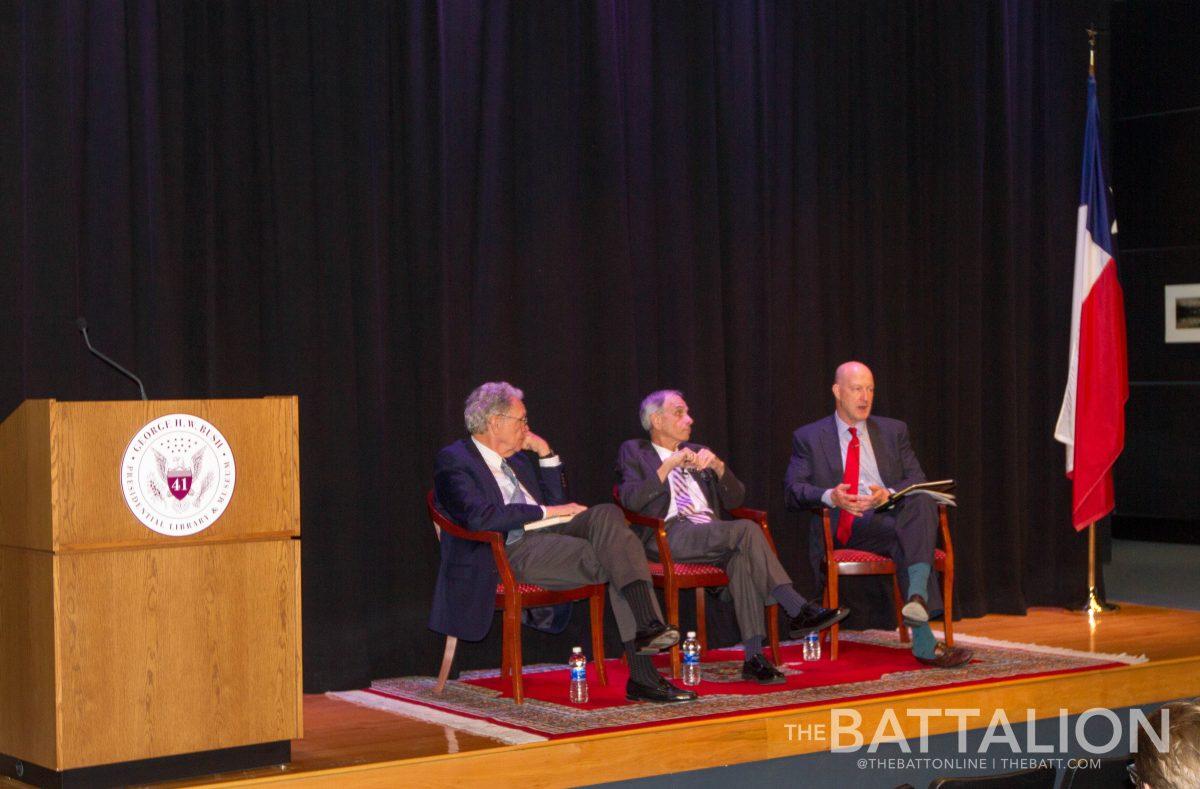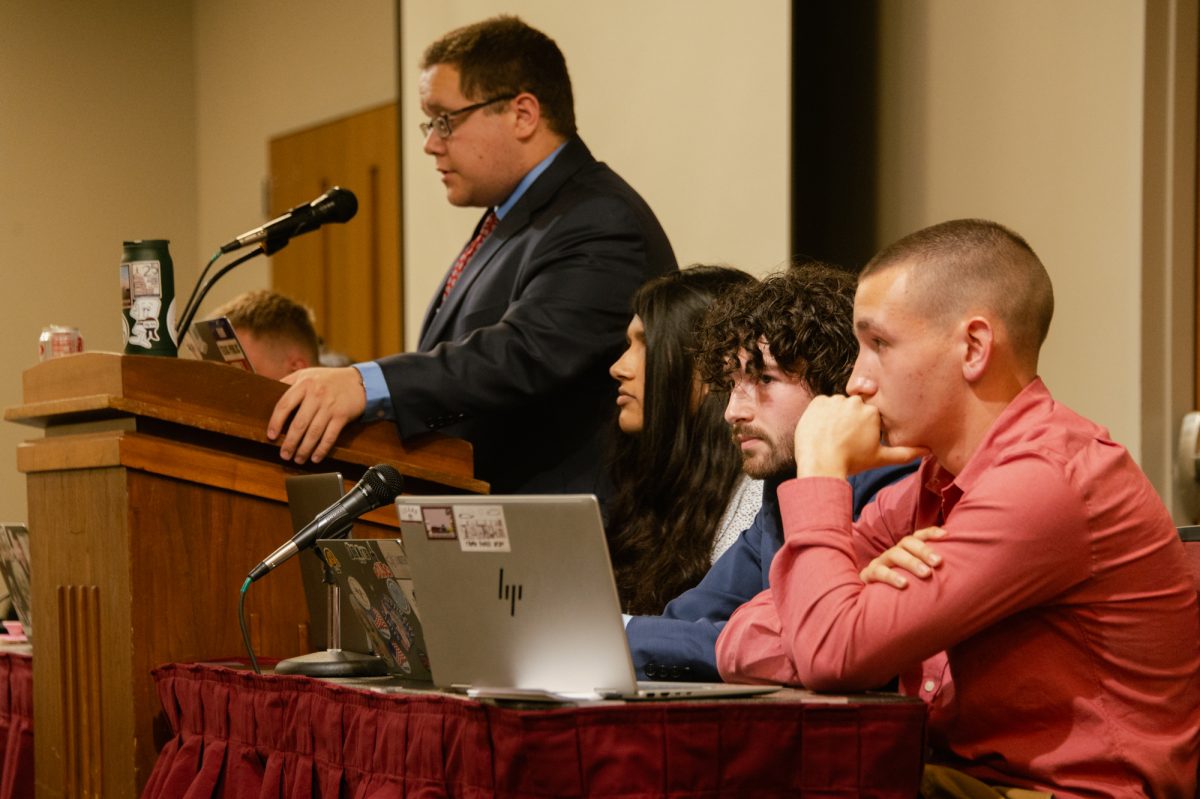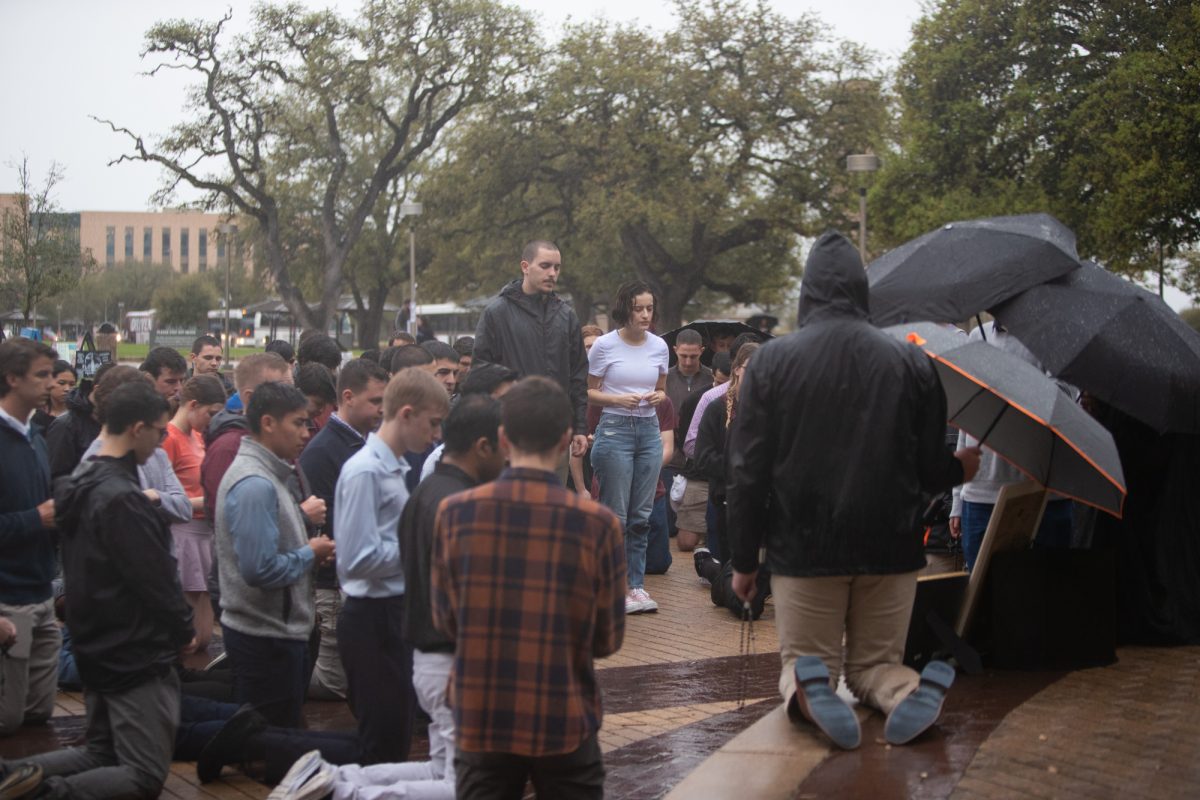Experts in the field of foreign policy discussed the impact and future of Russian interests in Eastern Europe at the Alexander Hamilton Society’s Discussion event on Thursday.
The discussion was led by Ian Brzezinski, Atlantic Council senior fellow and Strategic Advisors Group member, along with Charles F. Hermann, George Bush School of Government and Public Service Brent Scowcroft Chair in International Policy Studies. The forum, hosted by the Alexander Hamilton Society and the Bush School on April 12, was followed by a Q&A and moderated by Ambassador Larry C. Napper, Bush School senior lecturer.
International affairs graduate student and Alexander Hamilton Society co-president Mikaela Rhodes said the heightened public attention on Russia was part of the reason the society chose this topic.
“Currently, one of the biggest concerns in Eastern Europe is the fact that Russia might invade them,” Rhodes said. “From the United States’ perspective, the decision will be whether they need to endorse Article Five and [the North Atlantic Treaty Organization] to defend them. That’s part of the reason we’re interested in it. And what we [are] also interested in seeing [is if] the speakers believe that Russia will actually invade or [if the Russians are] just trying to control.”
Brzezinski said while progress has been made in responding to Russian activities in Eastern Europe, the overall effect of the Russian activities has been negative.
“The brazenness of these actions has escalated over the decades,” Brzezinski said.
During the discussion, Brzezinski, a foreign policy and military affairs expert, described several effects of Russian activities in Eastern Europe, detailing how Russia has become increasingly aggressive in this region. For example, Russia has invaded two different Eastern European countries in the span of six years: Georgia in 2008 and Ukraine in 2014.
“The West didn’t prompt this revisionist agenda,” Brzezinski said. “But there’s been a flaw in our policy. I think the inadequacy of our response to Putin’s revisionist agenda has only encouraged, if not catalyzed, that agenda and it’s brazenness.”
Brzezinski served as Deputy Assistant Secretary of Defense for Europe and NATO Policy from 2001 to 2005, under President George W. Bush. He also heads the Brzezinski Group, which provides policy and technical advice to government and private clients. He is a frequent contributor to the press on foreign policy issues.
Americans have persistent misconceptions about the Russian people, according to Brzezinski. He said Americans underestimate Russians’ dissatisfaction and desire for change.
“I think the biggest misconception among the broad swath of Americans is that we consider the Russian people as a kind of passive entity,” Brzezinski said. “I think we tend to miss the amount of commitment that the Russian people have to basic democratic principles, how frustrated they are with their current state.”
Both the United States and Russia need to find ways to de-escalate current tensions, according to Hermann.
“At the same time, we need to find ways to keep a dialogue open with Russia,” Hermann said. “If we are going to absolutely reverse direction, now with both sides deeply reducing their diplomatic corps — I think that’s necessary as a step now — but we’ve got to find a way back, so that at least channels of diplomatic communication are open.”
Alexander Hamilton Society Hosts Discussion on Russia and Eastern Europe
April 12, 2018
0
Donate to The Battalion
$2065
$5000
Contributed
Our Goal
Your donation will support the student journalists of Texas A&M University - College Station. Your contribution will allow us to purchase equipment and cover our annual website hosting costs, in addition to paying freelance staffers for their work, travel costs for coverage and more!
More to Discover










